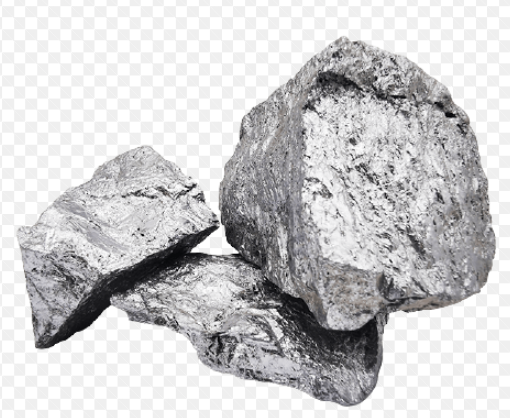Silicon metal is a fascinating element that plays a crucial role in various technological and industrial applications. Often found in everyday devices and integral to many modern advancements, it raises a common question: Is silicon a metal?
Understanding Silicon Metal
Silicon metal is the second most abundant element in the Earth's crust, primarily found in the form of silicon dioxide (sand) and silicates. Represented by the symbol Si and with an atomic number of 14, silicon is a metalloid, which means it possesses properties of both metals and non-metals.

Characteristics of Silicon Metal
To determine whether silicon metal can be classified as a metal, let's examine its properties:
Physical Properties:
- Appearance: Silicon metal appears as a shiny, grayish material, somewhat resembling metals in its luster.
- Conductivity: Silicon metal conducts electricity, but not as efficiently as true metals. Its conductivity improves significantly when doped with other elements, which is why it is extensively used in semiconductor technology.
- Malleability and Ductility: Unlike metals, silicon is brittle and cannot be easily shaped or stretched. It fractures rather than bends, a characteristic more aligned with non-metals.
Chemical Properties:
- Reactivity: Silicon metal is relatively inert at room temperature but reacts with halogens and dilute alkalis. It forms compounds such as silicon dioxide (SiO₂) and silicon carbide (SiC), which are essential in various industries.
- Bonding: Silicon metal primarily forms covalent bonds, similar to non-metals like carbon. However, under certain conditions, it can also exhibit metallic bonding traits.
Silicon metal as a Metalloid
Given these properties, silicon is classified as a metalloid. Metalloids have a mix of metallic and non-metallic characteristics, making them unique and versatile. Silicon's position on the periodic table, between metals and non-metals, reflects this dual nature.
Applications of Silicon Metal
Silicon metal's hybrid properties make it indispensable in numerous fields:
- Electronics: Silicon is the cornerstone of the semiconductor industry. It is used to manufacture transistors, diodes, and integrated circuits (ICs), forming the backbone of computers, smartphones, and other electronic devices.
- Solar Energy: Silicon's ability to convert sunlight into electricity makes it a key material in photovoltaic (solar) cells.
- Construction: Silicon compounds, such as silica (SiO₂), are vital in the production of glass, cement, and ceramics.
- Medical Devices: Silicon-based materials are used in medical implants and devices due to their biocompatibility.
while silicon metal exhibits some metallic properties, it is not classified as a metal. As a metalloid, it bridges the gap between metals and non-metals, offering unique advantages that drive innovation in technology and industry. Its role in electronics, renewable energy, and construction underscores its significance and versatility.
Understanding silicon metal's nature helps us appreciate the complexity and ingenuity behind the materials that power our modern world. So, next time you use your smartphone or enjoy a sunny day with solar power, remember the remarkable element that makes it all possible: silicon metal.
